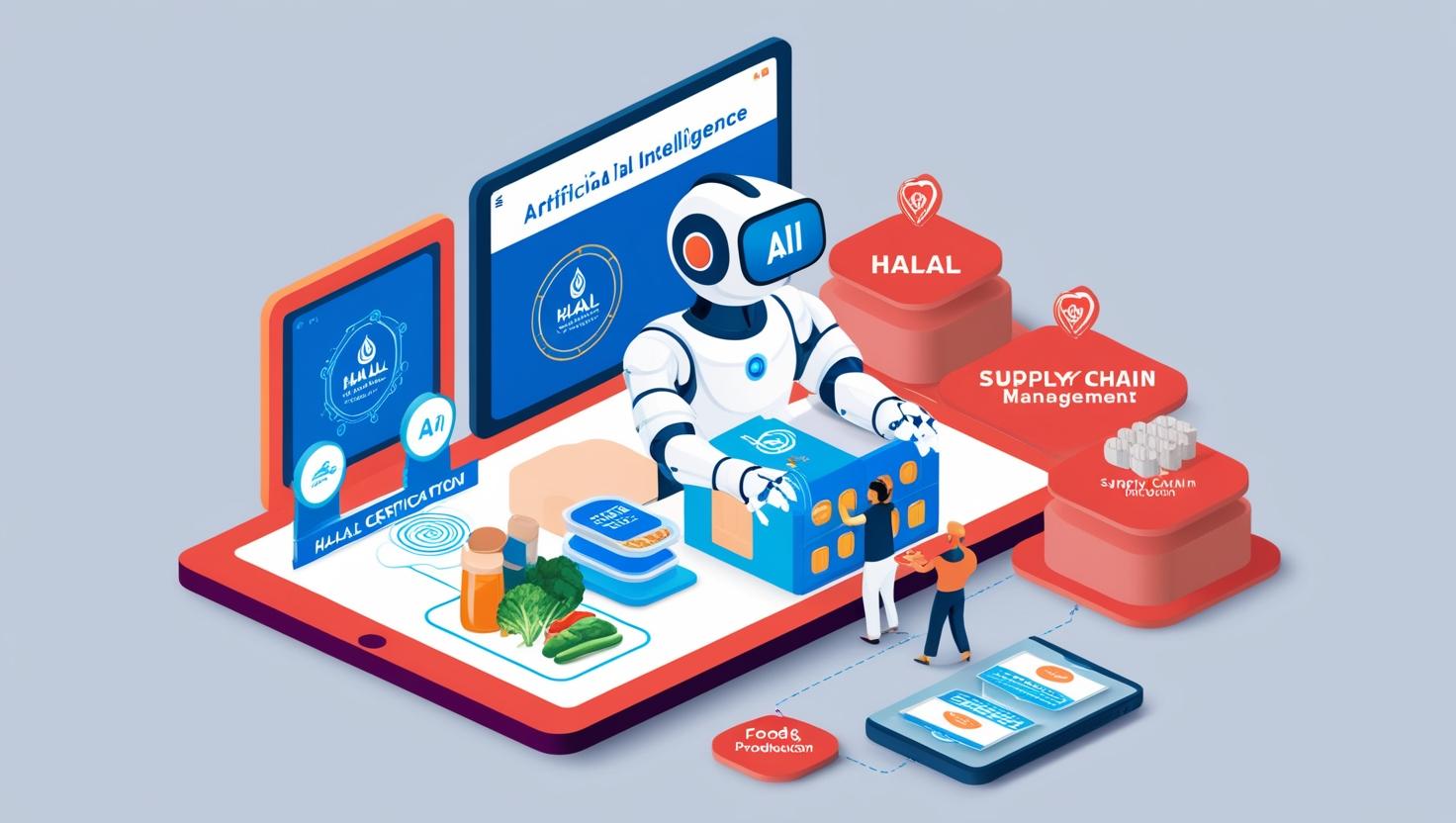Introduction: The Digital Revolution in Halal Supply Chains
In today’s fast-paced world, digital technology is transforming supply chains across industries – and the halal sector is no exception. The halal supply chain is unique in that it ensures products remain halal from production to consumption. Digital Technology 4.0 is at the heart of this transformation, offering innovative tools that enhance both financial and non-financial performance for firms involved in halal supply chains [1]. A systematic review confirms that these technologies streamline processes, improve traceability, and ensure strict compliance with halal standards.
Furthermore, this digital revolution invites us to explore how Muslims can use or respond to emerging tech in a halal way, blending tradition with innovation. As we delve deeper into the impact of these technologies, we reveal how they are reshaping the halal supply chain landscape and unlocking new opportunities for growth and efficiency.
Understanding the Halal Supply Chain
The halal supply chain is a comprehensive process that ensures products remain halal from their source to the final consumer. This is achieved through strict adherence to Islamic dietary laws where every step – from sourcing raw materials to manufacturing, processing, packaging, and distribution – meets halal certification requirements [1]. The journey begins with selecting permissible ingredients and continues through every stage to guarantee a contamination-free and compliant product.
Quality and compliance are of utmost importance. Traditional supply chains sometimes struggle to fulfill these complex demands due to intricate logistics and the need for specialized halal knowledge. For more details on overcoming these challenges with technology, be sure to check out our section on innovative halal tech solutions. For further reading on halal standards, visit the Halal Certification Authority.
The Evolution of Digital Technology 4.0 in Halal Industries
The halal industry is undergoing a transformative shift with the emergence of Digital Technology 4.0, including solutions such as the Internet of Things (IoT), blockchain, artificial intelligence (AI), and data analytics. These technologies are revolutionizing halal supply chains by enhancing transparency, traceability, and overall operational efficiency. For example, IoT devices enable real-time monitoring to ensure products consistently comply with halal standards, while blockchain provides an immutable record that boosts consumer confidence in product authenticity [1]. Additionally, AI and data analytics help optimize operations by predicting demand and streamlining logistics, ensuring efficient and timely delivery.
These advanced technologies are tailored to address the unique requirements of the halal industry. They not only support compliance but also contribute to exploring how Muslims can use or respond to emerging tech in a halal way. To discover more about the integration of these tools, check out our section on “Innovative Tools for Halal Business Success.”
Innovative Halal Tech Solutions: Enhancing Firm Performance
Innovative halal tech solutions are reshaping supply chain operations and significantly boosting firm performance. By integrating Digital Technology 4.0, companies can ensure halal compliance throughout the entire supply chain, enhancing both financial and non-financial outcomes. Blockchain technology, for instance, fosters transparency and traceability, which in turn improves customer trust and satisfaction. This adherence to halal standards not only elevates productivity but also minimizes operational risks.
Moreover, IoT devices offer real-time process monitoring, ensuring that every handling stage of halal products is properly managed. These advancements lead to cost savings and improved efficiency. When exploring how Muslims can use or respond to emerging tech in a halal way, it becomes clear that these innovations are critical to building consumer confidence and driving overall business success.
Insights from the Systematic Review: Evidence-Based Impact
The systematic review conducted by MDPI offers compelling insights into the impact of Digital Technology 4.0 on halal supply chains. By analyzing various case studies, the review highlights how technologies like IoT, blockchain, and AI enhance supply chain efficiency and transparency. These technologies have demonstrably improved both financial and non-financial performance metrics for firms engaged in halal supply chains [1].
One case study showcased the crucial role of blockchain technology in ensuring product authenticity and traceability, which is vital for maintaining halal integrity. Another example illustrated how AI optimizes logistics and reduces operational costs. Collectively, these advancements not only streamline processes but also build consumer trust by ensuring strict adherence to halal standards.
Conclusion: Embracing Digital Innovation for Halal Supply Chain Success
Digital innovation has revolutionized the halal supply chain by ensuring that products maintain their halal integrity from start to finish. By integrating innovative digital solutions, businesses can enhance operational efficiency, transparency, and traceability – all critical for compliance and overall performance [1]. Embracing Digital Technology 4.0 not only optimizes operations but also provides a platform for exploring how Muslims can use or respond to emerging tech in a halal way.
As the digital landscape continues to evolve, it is essential for businesses in the halal sector to adopt these trends and integrate them into their strategies. This forward-thinking approach positions companies for long-term success in an increasingly competitive market. For more insights on leveraging technology for supply chain excellence, be sure to explore our section on innovative halal tech solutions.


